- Home
- Shirlee McCoy
Home Again Page 13
Home Again Read online
Page 13
“That’s what Sunday always talked about,” Heavenly said wistfully. “Early in the morning, when it was still dark, and I couldn’t sleep, she’d come out on the porch with me, and she’d tell me all about what our farm was going to be like one day. Our farm. She always said that. Like I belonged there, and the land belonged to me.”
“You do, and it does,” Porter said.
“Until when? One of you decides you’re tired of me?”
“Family isn’t something you get tired of,” he replied, his answer too quick and too blithe and said with too little thought.
Clementine could hear that.
Heavenly must have, too. Heard it. Felt it. Responded to it in the way any teen in her position would.
She lifted her chin, her eyes flashing, the baby clutched so tightly to her skinny frame, they might have been one person.
“Right. We’ll see if you’re still saying that in the fall when the apples and cider and pumpkins are here, but Sunday still isn’t. Then you’ll be looking for a quick way to off-load a couple of us, and I’ll be the first to go. Because I’m not young and I’m not cute and I don’t fit in. Come on, dweebs,” she said, heading toward the cafeteria. “Let’s go find Rosie so we can get out of here.”
To Clementine’s surprise, the siblings fell into step behind her, marching toward the cafeteria like they were going to the gallows—somberly, silently. No joking or bickering or out-and-out fighting. They looked like what they were—a bunch of heartbroken kids who had no idea what the future was going to bring, no idea who’d be taking care of them in a month or a year, and no certainty at all that they’d be able to stay in the home they’d been told would be theirs forever.
“They need their mother,” Porter said. “And I’m a piss-poor replacement for her.”
“You’re not a replacement. You’re their uncle,” she said.
“I am the person who is supposed to be providing all the things she did.”
“You are the person who is supposed to be loving them. I don’t think there are any rules to how that should go.”
“It’s not about rules. It’s about know-how. When it comes to loving kids, I don’t have any.”
“It’s not complicated, Porter. You just give of your time and your energy and your compassion.”
“And, I still won’t be their mother. She knows them better than anyone. She’s spent time with them. She understands their personalities and their idosyncrasies.”
“And, she might not ever be able to return to them. You need to stop looking at this like it’s a temporary situation and start acting like those kids are your responsibility forever.”
“I prefer to keep hoping for her full recovery,” he muttered.
“We’re all hoping that, but you’re their uncle. You’re not just some guy who’s here because he’s obligated. You’re here because you love them, because you want them to be okay, because when push comes to shove, you’d give up weeks or months or years to make sure they are. And, even if you don’t feel that way now, you’re going to pretend like you do, because that’s what they deserve, it’s what they need, and giving them less will never be all right.”
The words spilled out in waves and then faded into silence.
She wasn’t sorry she’d said them.
She’d watched the Bradshaw men walk in and out of Sunday’s farmhouse, acting like outsiders, tiptoeing around the kids like they weren’t family. If Maddox and Milo were acting out, if Heavenly was planning for the moment when she’d be kicked to the curb, if Moisey was daydreaming about healing powers and little Twila was climbing out windows and sitting on the dock staring at the river, it wasn’t because they were troubled kids; it was because they were untethered, cut free from the family bond that they’d been assured would hold them tightly for always.
“You understand that I barely know them, right?” Porter said gruffly.
“You understand that family isn’t blood, right? That those kids are yours as much as they were Matt’s, as much as they are Sunday’s? That you are part of them and they’re part of you and that the farm is the thing that’s going to tie you together until your hearts know the truth?”
“I have a life in LA, Clementine.”
“You have a family here, and they need at least one person who isn’t going to act like they’re throwaways and second thoughts,” she responded. “Come on. Let’s make sure they’re with Rosie and Peg, and not wreaking havoc on the cafeteria staff.”
She turned away, because she’d said too much. Because this wasn’t her family, those weren’t her kids, the farm wasn’t her problem.
But, if they were, if it was, she’d give everything to make it work. Every hour, every minute, every bit of money and effort and love, because that’s what family did.
Always.
She might have grown up in an unconventional home. She might have struggled in her marriage. She might have failed at a lot of things, but she knew that.
It was a shame that the Bradshaw men didn’t seem to.
* * *
Two in the morning wasn’t the best time to be awake, but Porter was. Awake and pacing the farmhouse kitchen, listening to the quiet patter of rain on the tin roof.
The kids were all in bed.
He knew. He’d checked every room three times.
He’d checked on Heavenly more, because he couldn’t forget what she’d said at the hospital, or the way she’d said it—as if she were expendable in a way no one should ever be.
I’m not young and I’m not cute and I don’t fit in.
He should have told her she was all those things and more. He should have said that no one was getting tossed to the side or forgotten, that they’d stick together, make things work. No matter what happened with Sunday.
He should have said a lot of things, but he’d stayed mute, watching as she walked away, all the other kids following along behind her. Every one of them probably wondering if Heavenly were right—if, one by one, they’d be off-loaded to some other place, some other family.
God, he’d made a mess of things, walking into these kids’ lives like he was going to walk out again.
But that’s what he’d planned.
He could be honest enough with himself to admit it, and to admit that Clementine had been right. The kids deserved more. They needed more. They needed consistency and security. They needed to know who they’d see every morning when they woke up.
This situation—the in and out and back and forth, uncles coming and going—wasn’t healthy for any kid, but especially not for kids who’d suffered trauma and loss. No wonder there’d been so much acting out.
Hell, he was surprised there hadn’t been more.
He rubbed the back of his neck, uncomfortable with the direction of his thoughts, unwilling to follow them all the way to their logical conclusion, but unable to stop himself.
Someone had to stand in the gap that Matt had left.
Not for a day or a week or, even, months. Not even until Sunday recovered. Forever. Going to ball games and school meetings and recitals. Taking pictures before proms and cheering at graduations. Fishing. Hiking. Camping. Biking. Dating police.
Someone had to be there doing those things day in and day out until the kids were grown, and even then, it couldn’t end. Eventually, there’d be wrinkle-faced babies, teddy bears, birthday parties. Illness. Divorce.
“Damnit, Matt,” he muttered. “Did you think about that when you decided you needed to father six children?”
Probably not.
Matthias had never been big on foresight. He’d made decisions quickly, and if he’d regretted them, he’d never let on. He was a good-old-boy, the kind of guy everyone liked. Easy going, charming, helpful. He’d have given the shirt off his back to anyone who needed it. Hundreds of people had attended his funeral and told stories about the favors he’d done for them. Money lent, and food purchased, and cars fixed. He’d been well-loved and admired by the community, but his farm was failin
g, his bills hadn’t been paid, his wife had obviously been struggling to keep things going.
Had Sunday been happy? Had she been content, secure, confident that her family and her farm were going to be okay?
And, why in the hell was he just now wondering that?
Why hadn’t he asked when he’d visited six months ago? Why had he noticed the broken fence posts and scraggly grass and overgrown fields and not bothered asking what was going on, why the once beautiful farm was being neglected?
Heavenly had talked about the dreams Sunday had for the place, but based on the financial mess Matt had left, it would have been impossible to make them come true. There hadn’t been money for chickens or coops or feed. There’d been nothing in the budget for fixing fences, plowing fields, or planting crops. A working farm was expensive to run, and Matthias had seemed clueless about that.
He’d bought a sports car, for God’s sake.
And he’d died in it.
The loan papers freshly signed, more debt added to what had already been accrued. If he’d lived, he’d have lost the farm in less than two years.
Sunday had to have known that.
Unlike Matt, she understood what it took to make a place like this successful. Her family had run the farm for generations. As a teenager, she’d worked with her parents to plant and harvest and to keep things running. She’d been their only child, born late in their lives. It would have been easy for them to spoil her, to give her everything and demand nothing, but they’d taught her work-ethic and business savvy, and Porter couldn’t help wondering why she’d buried that under the rug and let Matt take over.
It must have been heartbreaking to watch everything her family had worked for and toiled over slip away. But she’d done it, pouring herself into her kids, burying her head in the sand and pretending things were fine.
Just like his mother had.
The thought slipped in and settled deep, his mind going to a dark place. One where the brother he’d loved was a tyrant behind closed doors.
“Damnit, Matt,” he repeated, grabbing his coat from the closet and walking outside. He needed fresh air and a clear head, because he was starting to think about his brother’s failures, think about the way he could turn them into successes. He was starting to imagine himself sticking around, being there all day every day for the kids that Matt had left behind.
For his family.
That’s what Clementine had been trying to say.
Their uncle.
Not just a guy stepping in until someone else could do it.
He scowled, pulling up his hood and walking into the cold rain. It fell in soft sheets, pattering on the grass and the hard earth. He had no destination, just the strange feeling that this was right—walking in the darkness and the rain.
He followed the curve of the driveway, following it to the country road that meandered through yellow fields and dense forests. To the right, the river cut across the landscape. To the left, lights glowed from the windows of the rancher.
He knew what he shouldn’t do.
He shouldn’t turn left.
He did, walking as if he had all the time in the world, as if the rain weren’t falling and he wasn’t getting soaked, his mind circling back to Sunday and Matt and their marriage.
Had it been a good one?
He’d assumed so, because he’d assumed that Matt would never be like their father.
What if he’d been wrong?
What if the slow decline of the farm had been about control or punishment? What if Matt had been purposely destroying something Sunday loved?
What if a dozen things that didn’t matter any longer?
Matt was gone.
Sunday was so badly injured she might never recover.
Whatever had been between them was over, but he still wanted to know.
He told himself that was why he was walking to the rancher, why he let the glowing light in the living room window convince him that Clementine was awake.
He told himself that, and knew he was lying.
He’d come because he wanted to see her.
She drew him in the way no woman ever had, her quick wit and sharp mind and soft lips. She was everything he’d have wanted if he’d been looking for forever. Everything he’d have wanted if he’d been looking at all.
He hadn’t been. He wasn’t.
He knocked on the door anyway, waiting for the soft slide of the bolt and the quiet click of the lock. He heard both, and then the door opened, and she was standing there, hair pulled into a tight bun, body covered by a thick gray sweater and black leggings.
She didn’t look any more surprised to see him than he was to be there.
“Porter,” she said, “is everything okay?”
“I couldn’t sleep, and your light was on.”
She nodded as if that explained everything. “I couldn’t sleep, either. Too hyped up from all the excitement tonight, I guess. Come on in. Want some coffee?” she asked, already moving toward the kitchen.
“You don’t have any, remember?”
“Damn. You’re right.” She dropped onto a stool that sat next to what looked like an old-fashioned spinning wheel. “I planned to go to the store, but ended up in the hospital instead.”
“You’re still feeling okay?”
“Right as rain, but I did locate my inhaler, and the hospital sent me home with my own EpiPen. I’m supposed to go to an allergist sooner rather than later because the asthma attack was so bad.”
“Supposed to?”
“In case you haven’t noticed,” she said, lifting tufts of gray and white fiber from the basket at her feet, “I’m a little busy.”
“Your health comes before the farm, Clementine.”
“My health is fine. It’s your house that has the problem. Too much dust.” She pressed her bare foot against the pedal and pulled the fibers through her fingers, working a thin thread onto the wheel.
“That looks—”
“Tedious?”
“Relaxing.”
“It is.”
“Did you learn from your father?”
“From one of his wives. She was actually Scottish, believe it or not, and had learned the skill from her grandmother.”
“How many wives did your dad have?”
“Three? Four? He also had girlfriends. Lovers. Mistresses.”
“Was that hard on you?”
“It was all I ever knew, so no. I just accepted it.”
“But didn’t want it for yourself?” he guessed.
“No. I figured I’d get married once and stay married forever. That wasn’t in the cards, so now I’m content to stay single and spend my evening spinning wool and binge-watching Netflix.”
“You don’t have a television or a computer in here,” he pointed out.
“Okay. So I’m not into Netflix, but you’ve got to admit, it sounded good.” She glanced up from the fibers and smiled. “Now that we’ve got that out of the way, how about you tell me why you’re here.”
“What do you know about Sunday and Matt’s relationship?” he asked, deciding a straightforward approach was the best one.
“Why are you asking?”
“Because my brother was running this farm into the ground, and I want to know why.”
“That’s a question only he can answer.”
“And that’s a cop-out if I ever heard one.”
“Maybe, but it’s also the truth.” She lifted her foot from the pedal and dropped the fiber back into the basket. “You know, I think I’ll see if I have coffee in the freezer. Sometimes I keep a bag there.”
She stood languidly, as if she had all the time in the world, as if she weren’t planning to run from the room and from his questions.
“Whatever you have to say, it can’t hurt Matt. He’s gone.”
“I’m not worried about hurting him. I’m worried about hurting you,” she said.
“What’s that supposed to mean?”
“Just that somet
imes it’s better to remember who we thought someone was rather than who they turned out to be.”
She moved then, and did what he’d known she would. Hurried into the kitchen.
He should have left it like that—him waiting in the living room while she made a show of searching the freezer for coffee she probably didn’t want.
But he couldn’t.
It wasn’t the way he operated.
He wanted facts and truth and reality. Not sweet little stories that made him feel better.
He stood and followed her, stepping into the kitchen and waiting for her to acknowledge him.
Chapter Seven
She hoped if she ignored him long enough, he’d get the hint and go away.
It wasn’t that she didn’t want him around.
Having him there was a lot better than lying in bed, staring at the ceiling, imagining she smelled cologne and cigarettes.
But this was Porter she was dealing with. Not Sim.
He’d probably stand in the kitchen for the rest of his life, waiting for her to turn and face him.
She sighed, shifting the contents of the freezer around one more time.
No coffee, but then, she’d already known that.
“Eventually,” Porter said, “you’re going to have to turn around and face me.”
“Actually, there are other possibilities. I could face this direction until you leave—”
“I’m not planning to leave.”
“Or I could walk out the back door.”
“But you won’t.”
“No,” she said, finally turning around and meeting his eyes. “I won’t, but I’m not going to talk about Matt and Sunday, either.”
“I can think of a lot of reasons why not. None of them are pleasant.”
“He wasn’t abusive, if that’s what you’re thinking,” she said.
“It was one of the things I wondered.”
“What were the others?” she asked, curious despite herself.
“If he was trying to hurt her by destroying something she loved.”
“In my mind, that would be the same as abuse.”
“So, he wasn’t abusive, he didn’t want to hurt her. What does that leave, Clementine?” he asked as he crossed the room, stopped just inches from where she stood.

 Home at Last
Home at Last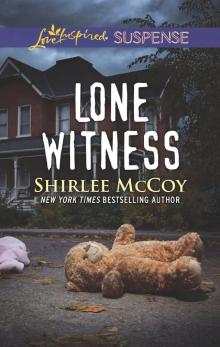 Lone Witness
Lone Witness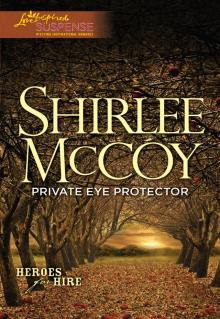 Private Eye Protector
Private Eye Protector Valiant Defender
Valiant Defender Running Scared
Running Scared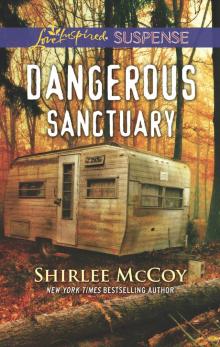 Dangerous Sanctuary
Dangerous Sanctuary Capitol K-9 Unit Christmas: Protecting VirginiaGuarding Abigail
Capitol K-9 Unit Christmas: Protecting VirginiaGuarding Abigail Hidden Witness
Hidden Witness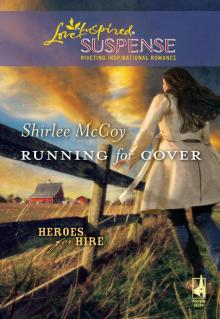 Running for Cover
Running for Cover Gone
Gone Valley of Shadows and Stranger in the Shadows: Valley of ShadowsStranger in the Shadows
Valley of Shadows and Stranger in the Shadows: Valley of ShadowsStranger in the Shadows Home with You
Home with You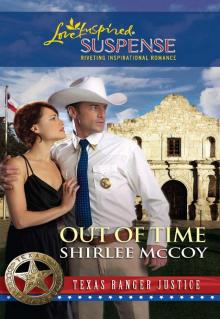 Out of Time
Out of Time Deadly Christmas Secrets
Deadly Christmas Secrets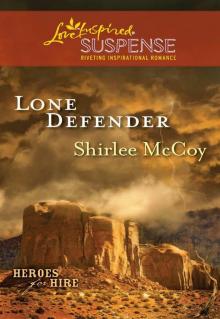 Lone Defender (Love Inspired Suspense)
Lone Defender (Love Inspired Suspense)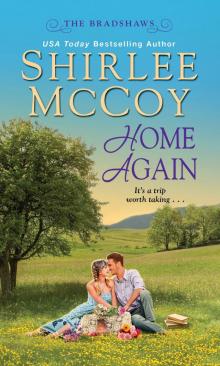 Home Again
Home Again Die Before Nightfall
Die Before Nightfall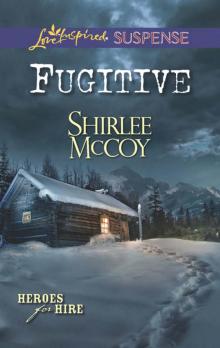 Fugitive
Fugitive Deadly Vows
Deadly Vows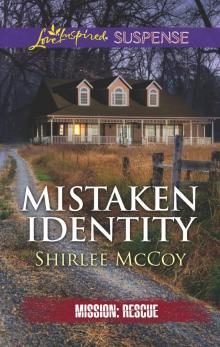 Mistaken Identity
Mistaken Identity Capitol K-9 Unit Christmas
Capitol K-9 Unit Christmas The Christmas Target
The Christmas Target SB01 - The Guardian's Mission
SB01 - The Guardian's Mission Sweet Surprises
Sweet Surprises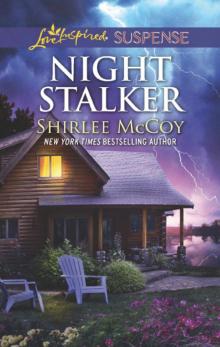 Night Stalker
Night Stalker The Cottage on the Corner
The Cottage on the Corner Love Inspired Suspense January 2014
Love Inspired Suspense January 2014 0373447477 (R)
0373447477 (R) Love Inspired Suspense March 2015 - Box Set 1 of 2: Protection DetailHidden AgendaBroken Silence
Love Inspired Suspense March 2015 - Box Set 1 of 2: Protection DetailHidden AgendaBroken Silence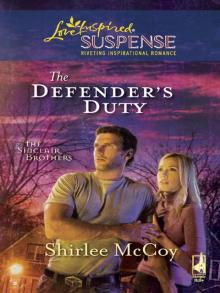 SB03 - The Defender's Duty
SB03 - The Defender's Duty Love Inspired Suspense June 2015 - Box Set 2 of 2: Exit StrategyPaybackCovert Justice
Love Inspired Suspense June 2015 - Box Set 2 of 2: Exit StrategyPaybackCovert Justice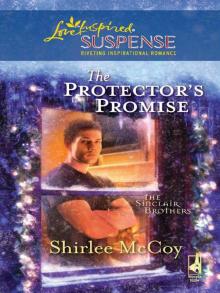 The Protector's Promise (The Sinclair Brothers)
The Protector's Promise (The Sinclair Brothers) Bodyguard
Bodyguard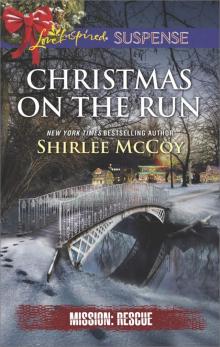 Christmas on the Run
Christmas on the Run The Orchard at the Edge of Town
The Orchard at the Edge of Town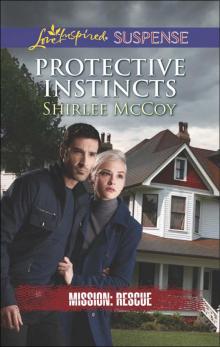 Protective Instincts
Protective Instincts Sweet Haven
Sweet Haven The House on Main Street
The House on Main Street Her Christmas Guardian
Her Christmas Guardian Undercover Bodyguard
Undercover Bodyguard